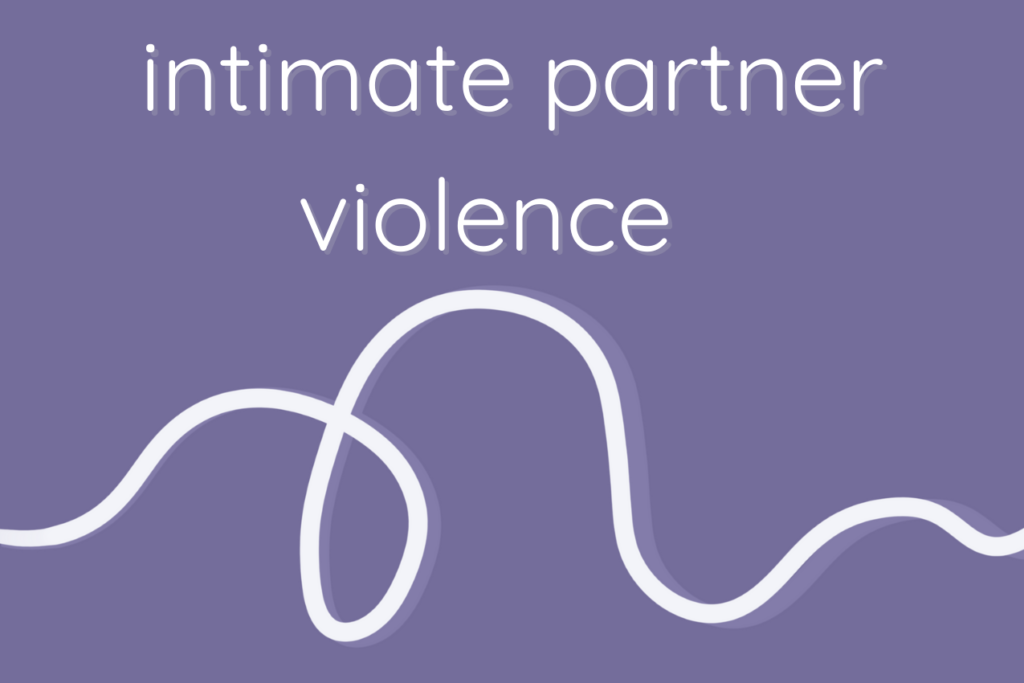Intimate Partner Violence
by Raquel Hennessey | September 2021
The phrase “intimate partner violence” can elicit various emotions or thoughts. Most people think of extreme physical violence, often what they see on tv or the news, which is true. However, it is only one form of intimate partner violence. A relationship might look healthy on the outside but behind closed doors, it may look very different.
Intimate partner violence looks and takes many forms. When we first enter a relationship, we might not notice the subtle forms of abuse. This can look like a partner trying to control who you spend time with, what you wear, or what you can or cannot do with your time. These types of abuse occur over time and you might not even realize it until you have lost many friends and family members.
Isolation and control are the main components an abuser will use to get their partner to do what they want. Another type of abuse that has been recently used a lot in social media platforms is gaslighting. Gaslighting is manipulation that occurs when a partner distorts reality so much that the other begins to doubt themself. In extreme circumstances of gaslighting, the victim can begin to believe that they have a form of mental illness.
Ignoring the early signs of subtle intimate partner violence may lead to a relationship that is abusive, isolating, and ultimately destructive. Moreover, intimate partner violence may impact the mental and physical safety of potential children or pets in the house.
If any of these experiences sound familiar, please seek help even if you are the person who is inflicting intimate partner violence on your partner. Your therapist can help you identify the abusive parts of your relationships and provide you with clinical interventions that will help you heal and grow. More importantly, they will provide you a safe space to be vulnerable and listen to you nonjudgmentally. They will not immediately assume that one partner must be an evil person or that the other partner must be meek. They will explore ways to help both you and your partner in developing a healthier relationship whether you attend individual or couples counseling.
Note: If you feel like you are in a relationship and experiencing intimate partner violence, please reach out to a trusted person or call the IL DV hotline: 877-863-6338.
At Roamers Therapy, our psychotherapists are here to support you through anxiety, depression, trauma and relationship issues, race-ethnicity issues, LGBTQIA+ issues, ADHD, Autism, or any challenges you encounter. Our psychotherapists are trained in Cognitive Behavioral Therapy, Dialectical Behavioral Therapy, Psychodynamic Therapy, Acceptance, and Commitment Therapy, Person-Centered Therapy, and Gottman Therapy.
Whether you’re seeking guidance on a specific issue or need help navigating difficult emotions, we’re ready to assist you every step of the way.
Contact us today to learn more about our services and schedule a session with our mental health professionals to begin your healing journey. To get started with therapy, visit our booking page.
First, decide if you’ll be paying out-of-pocket or using insurance. If you’re a self-pay client, you can book directly through the “Book Now” page or fill out the “Self-Pay/Out-of-network Inquiry Form.” If you’re using insurance, fill out the “Insurance Verification Form” to receive details about your costs and availability. Please let us know your preferred therapist. If your preferred therapist isn’t available, you can join the waitlist by emailing us. Once your appointment is confirmed, you’ll receive intake documents to complete before your first session.
This page is also part of the Roamers Therapy Glossary; a collection of mental-health related definitions that are written by our therapists.
While our offices are currently located at the South Loop neighborhood of Downtown Chicago, Illinois, we also welcome and serve clients for online therapy from anywhere in Illinois and Washington, D.C. Clients from the Chicagoland area may choose in-office or online therapy and usually commute from surrounding areas such as River North, West Loop, Gold Coast, Old Town, Lincoln Park, Lake View, Rogers Park, Logan Square, Pilsen, Bridgeport, Little Village, Bronzeville, South Shore, Hyde Park, Back of the Yards, Wicker Park, Bucktown and many more. You can visit our contact page to access detailed information on our office location.

